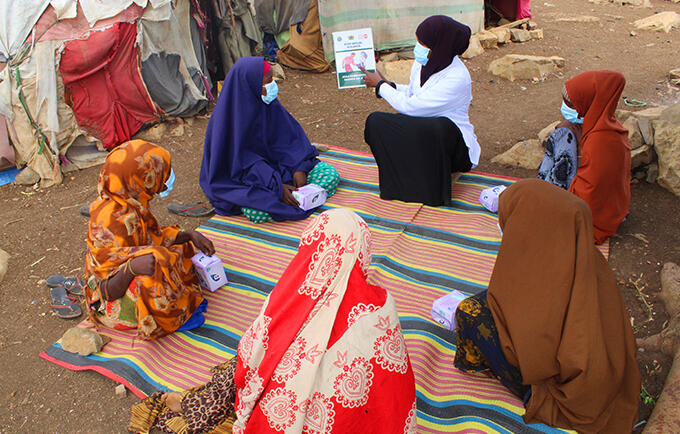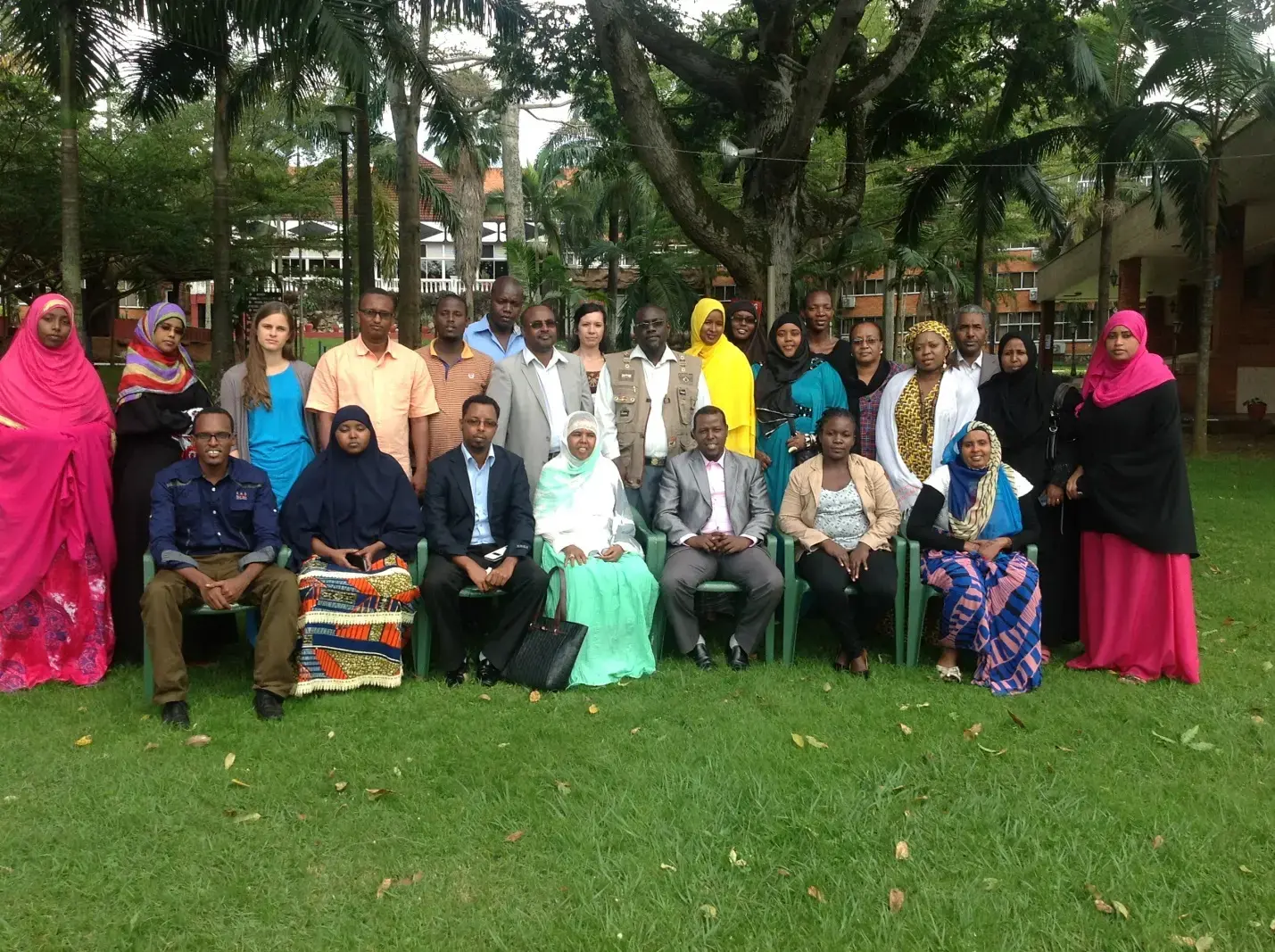“What is more painful isn’t the beatings and injuries inflicted on me, but rather the psychological trauma I underwent after the assault,” says Muna Abdi*.
Muna, 23, a mother of three, who resides in Walag 1 camp for internally displaced persons (IDPs) in Baidoa, was injured by her husband on the morning of 14 May 2021. She had reportedly engaged in a verbal altercation with him over domestic-related issues that went awry and which ultimately resulted in physical assault and abuse by him.
“I vividly recall what happened that Friday morning. My husband physically assaulted me and caused serious injuries to my body. I left the homestead to seek medical help as well as to escape from him,” narrates Muna after she had fully recovered from her wounds.
Muna, 23, a mother of three, has just undergone psychosocial support. UNFPA Somalia provides technical and financial support to the Rural Education and Agriculture Development Organization (READO), a non-governmental organization, to provide comprehensive care to survivors of gender-based violence (GBV). The support includes medical, legal and psychosocial services either within one location, a hospital or a stand-alone centre or through a referral system that links services.
Luckily for Muna, the READO GBV team was conducting a regular field monitoring visit in the IDP camp on the same morning of the ordeal. They got to learn from community leaders about the incident. “We looked for Muna and found her. We assessed her case after following the normal procedures of consent taking,” said Siyad Abdirahman Mohamud, READO GBV field coordinator.
According to Mohamud, the team supported Muna with medical services at the one-stop centre operated by the READO medical and GBV team. “We also provided her with psychosocial counselling,” he said.
UNFPA is one of the UN’s lead agencies working with partners like READO to further gender equality and women’s empowerment and address the physical and emotional consequences of GBV. UNFPA’s programmes offer psychosocial assistance, medical treatment and rape kits to survivors and promote the right of all women and girls to live free of violence and abuse.
Between 25 and 30 different GBV cases are supported, and hundreds of people are mobilized among IDPs in Baidoa each month.
“Somalia continues to face a complex humanitarian crisis. About 5.2 million people need humanitarian assistance, and this contributes to the occurrence of GBV,” said Abdullahi Abdirasak, Humanitarian Programme Analyst for UNFPA Somalia.
He said the number of displaced people across the country is at 2.6 million, with 340,000 women and girls at risk of GBV. “There continues to be a need for the protection of vulnerable groups. We put all our efforts to fill gaps in GBV response in the best way we can,” said Abdirasak.
With UNFPA’s support, READO is stepping up the provision of psychosocial support services to women and girls affected by GBV, harmful practices including rape, physical abuse, sexual assault, and child and forced marriages.
Meanwhile, Muna is back in her home. READO continues to counsel her while carrying out follow-up visits with her. Muna also received a dignity kit upon return to her home.
UNFPA also supports the procurement and distribution of dignity kits; they contain basic hygiene necessities, including soap and detergent, a toothbrush and toothpaste, underwear and menstrual pads. The dignity kits are distributed to women and girls affected by humanitarian emergencies.
“I very much appreciate the support given to me by the team from this organization,” said Muna, pointing at the logo of READO on a jacket won by the psychosocial expert counselling her on the trauma she underwent. “The continued counselling and support from this organization has helped me regain my self-esteem and courage,” she added.
*Name changed for privacy and protection




